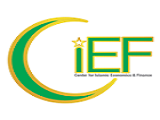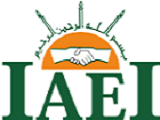Modeling Debt And Equity Crowdfunding Based On Murabahah, Musharakah And Mudarabah: Trust And Awareness
Abstract
Crowdfunding become one of the most effective alternatives for raising funds, although it is not a new phenomenon in developed and developing countries but seems to be new in Nigeria. As such, the study aims to propose Shariah framework that addresses conventional debt and equity crowdfunding, instead, using Murabaha as debt, Mudarabah and Musharakah as equity model and further measure the level of awareness and trust towards behavioural intention towards crowdfunding in Northern Nigeria. The sample was collected from 2730 purposively selected and used Structural Equation Modeling (SEM) for data analysis. Findings, revealed that the proposed structural framework of crowdfunding proved to enhance entrepreneur vision for raising investment fund based on Shariah-compliant in Northern Nigeria. Further indicates, lack of awareness and inappropriate use of internet platform resulted in perceived entirely irrelevant investment opportunities and developed fair to invest online. Practical implications: The paper provides awareness and trust on how to improve debt and equity-based crowdfunding for a fundraiser and successful funding a business structure based on Shariah compliant. Originality/Value: the study makes significant contribution towards propose Shariah framework of crowdfunding in Nigeria, and it provides awareness and trust to Nigerian Muslims entrepreneurs as in line with Shariah-compliant.
JEL Classification: E4, O31, O35Keywords
Full Text:
PDFReferences
Ajai, O. (2012). Law, water and sustainable development: framework of Nigerian law. Law Env't & Dev. J., 8, 89.
Akwe, J. A., & Garba, S. B. (2019). Effects of Internal and External Factors on Stock Returns of Large Size Firms in Nigeria. Global Journal of Accounting, 5(1), 44-56.
Alam, N., & Rajjaque, M. S. (2016). Shariah-compliant equities: Empirical evaluation of performance in the European market during credit crunch. In Islamic Finance (pp. 122-140). Palgrave Macmillan, Cham.
Bagozzi, R. P., & Yi, Y. (1988). On the evaluation of structural equation models. Journal of the academy of marketing science, 16(1), 74-94.
Bentler, P. M. (1990). Comparative fit indexes in structural models. Psychological bulletin, 107(2), 238.
Brem, A., & Wassong, N. (2014). Wer investiert warum. Eine Analyse von Investmententscheidungen bei Crowdfunding-Projekten. ZfKE–Zeitschrift für KMU und Entrepreneurship, 62, 31-55.
Brulle, R. J. (2014). Institutionalizing delay: foundation funding and the creation of US climate change counter-movement organizations. Climatic change, 122(4), 681-694.
Burtch, G., & Chan, J. (2018). Investigating the relationship between medical crowdfunding and personal bankruptcy in the United States: Evidence of a digital divide. MIS Quarterly (Forthcoming).
Byrne, B. M. (2010). Structural equation modeling with AMOS: basic concepts, applications, and programming (multivariate applications series). New York: Taylor & Francis Group, 396, 7384.
Chan, C. R., & Parhankangas, A. (2017). Crowdfunding innovative ideas: How incremental and radical innovativeness influence funding outcomes. Entrepreneurship Theory and Practice, 41(2), 237-263.
Chau, P. Y. (1997). Reexamining a model for evaluating information center success using a structural equation modeling approach. Decision Sciences, 28(2), 309-334.
Chau, P. Y., & Hu, P. J. H. (2001). Information technology acceptance by individual professionals: A model comparison approach. Decision sciences, 32(4), 699-719.
Child, D. (1990). The essentials of factor analysis. Cassell Educational.
Davis, M., & Cartwright, L. (2019). Financing for Society: Assessing the Suitability of Crowdfunding for the Public Sector. https://books.google.com.ng/books?hl=en&lr=&id=wYiUDwAAQBAJ&oi
Freedman, D. M., & Nutting, M. R. (2015). The foundations of online crowdfunding, in equity crowdfunding for investors: A guide to risks, returns, regulations, funding portals, due diligence, and deal terms. Hoboken. NJ: Wiley, 10, 9781118864876.
Grèzes, V., Emery, L., Schegg, R., & Perruchoud, A. (2015). Crowdfunded tourism activities: Study on the direct impact of Swiss crowdfunding platforms on the tourism industry. In Conference: Travel & Tourism Research Association (pp. 1- 10).
Hagedorn, A., & Pinkwart, A. (2016). The financing process of equity-based crowdfunding: An empirical analysis. In Crowdfunding in Europe (pp. 71- 85). Springer, Cham.
Hagedorna, A., & Pinkwartb, A. (2013). Crowdinvesting as a Financing Instrument for Startups in Germany. A Critical Platform Analysis, 17.
Hair Jr JF, Black WC, Babin BJ, Anderson R, Tathum R. (2006). Multivariate data analysis. 6th ed. Upper Saddle River: Prentice Hall; 2006.
Hair, J. F., Anderson, R. E., Tatham, R. L., & Black, W. C. (1999). Análisis multivariante (Vol. 491). Madrid: Prentice Hall.
Hamari, J., Sjöklint, M., & Ukkonen, A. (2016). The sharing economy: Why people participate in collaborative consumption. Journal of the association for information science and technology, 67(9), 2047-2059.
Ho, R. (2006). Handbook of univariate and multivariate data analysis and interpretation with SPSS. CRC press.
Hornuf, L., & Schmitt, M. (2016). Success and failure in equity crowdfunding. CESifo DICE Report, 14(2), 16-22.
Kline, R. B. (2010). Promise and pitfalls of structural equation modeling in gifted research. In B. Thompson & R. F. Subotnik (Eds.), Methodologies for conducting research on giftedness (p. 147–169). American Psychological Association. https://doi.org/10.1037/12079-007
Kline, R. B. (2011). Convergence of structural equation modeling and multilevel modeling (pp. 562-589). na.
Kuppuswamy, V., & Bayus, B. L. (2017). Does my contribution to your crowdfunding project matter?. Journal of Business Venturing, 32(1), 72- 89.
Liang, T. P., Wu, S. P. J., & Huang, C. C. (2019). Why funders invest in crowdfunding projects: Role of trust from the dual-process perspective. Information & Management, 56(1), 70-84.
Lipusch, N., Dellermann, D., Bretschneider, U., Ebel, P., & Leimeister, J. M. (2020). Designing for Crowdfunding Co-creation. Business & Information Systems Engineering, 1-17.
Mahomed, Ziyaad and Ramadili Mohd, Shamsher Mohamad. (2016). Managing risk in the Islamic finance sector. CIAWM Bulletin, 3, pp. 1 -16.
Moritz, A., & Block, J. H. (2014). Crowdfunding und Crowdinvesting: State-of- the-Art der wissenschaftlichen Literatur (Crowdfunding and Crowdinvesting: A Review of the Literature). Zeitschrift für KMU und Entrepreneurship, 62(1), 57-89.
Rahman, M. P., Duasa, J., & Kamil, N. (2016). Factors Contributing To The Success of Crowdfunding: The Malaysian Case. In Asia-Pacific Conference on Economics & Finance (APEF) (Vol. 27).
Sapovadia, V. (2017). Jaiz: The Birth of Non-Interest Banking in Nigeria. Developing Africa’s Financial Services: The Importance of High-Impact Entrepreneurship, 199.
Stanko, M. A., & Henard, D. H. (2017). Toward a better understanding of crowdfunding, openness and the consequences for innovation. Research Policy, 46(4), 784-798.
Tabachnik, B. G., & Fidell, L. S. (1996). Using multivariant statistics New.
Mohd Thas Thaker, M.A.B. (2018), "A qualitative inquiry into cash waqf model as a source of financing for micro enterprises", ISRA International Journal of Islamic Finance, 10 (1), pp. 19-35. https://doi.org/10.1108/IJIF-07-2017-0013
Torabi, O., & Mirakhor, A. (2020). Crowdfunding with Enhanced Reputation Monitoring Mechanism (Fame) (Vol. 3). Walter de Gruyter GmbH & Co KG.
Venkataraman, S. (2019). The distinctive domain of entrepreneurship research. In Seminal ideas for the next twenty-five years of advances. Emerald Publishing Limited.
Wang, W., Mahmood, A., Sismeiro, C., & Vulkan, N. (2019). The evolution of equity crowdfunding: Insights from co-investments of angels and the crowd. Research Policy, 48(8), 103727.
Wennberg, K., Pathak, S., & Autio, E. (2013). How culture moulds the effects of self- efficacy and fear of failure on entrepreneurship. Entrepreneurship & Regional Development, 25(9-10), 756-780.
DOI: http://dx.doi.org/10.24042/febi.v5i2.7789
Refbacks
- There are currently no refbacks.
Copyright (c) 2020
Ikonomika : Jurnal Ekonomi dan Bisnis Islam is a Journal of Islamic Economics and Business, Published by the Faculty of Islamic Economics and Business at UIN Raden Intan Lampung Indonesia. This work is licensed under a Creative Commons Attribution-ShareAlike 4.0 International License.






11.png)



.png)
1.png)
.png)
.png)
.png)
2.png)
.png)
.png)
.png)